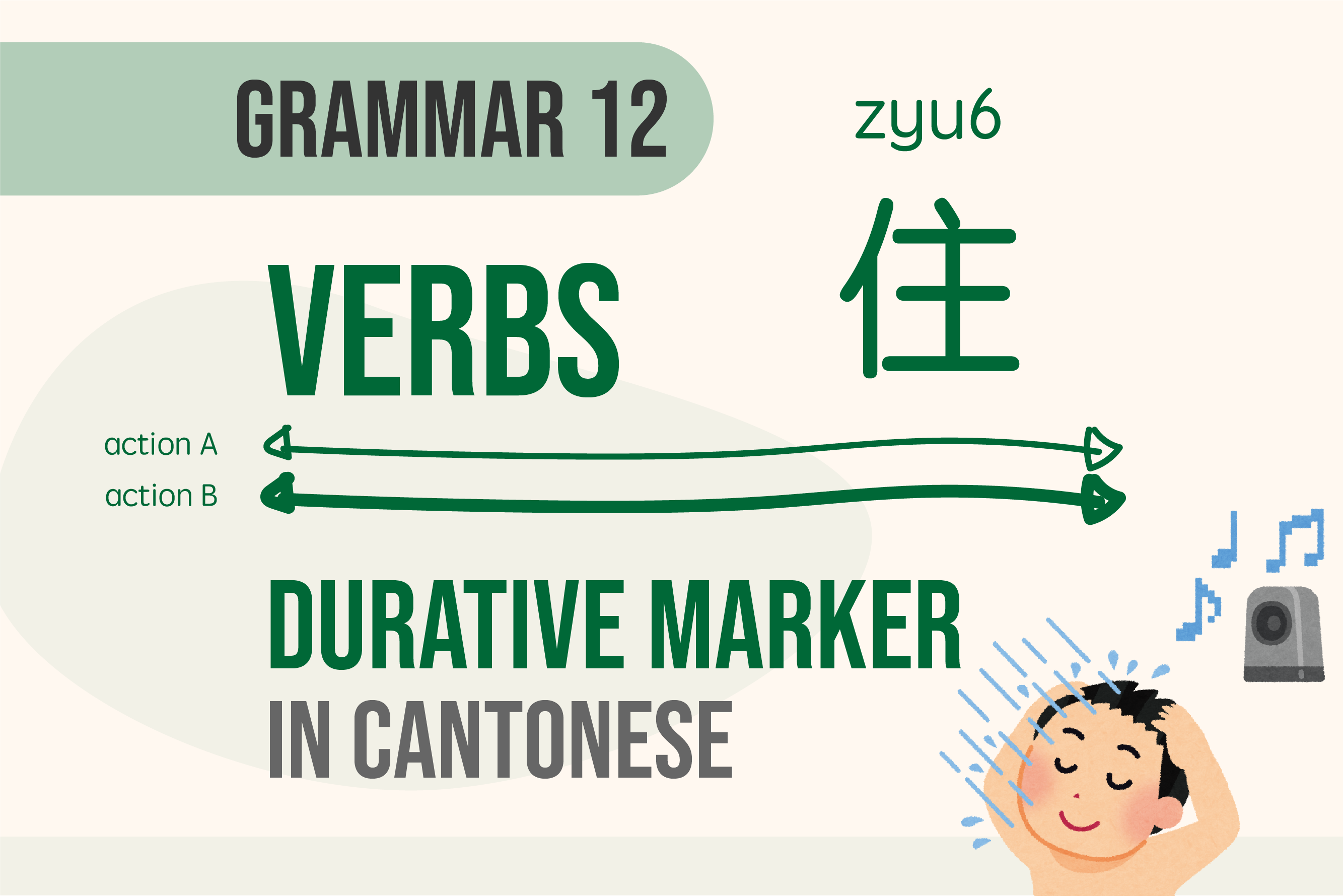Table of Content
When talking about continuous actions in Cantonese, both 緊 and 住 are used, but they serve different purposes. 緊 indicates a progressive action, while 住 denotes a durative action. 住 is often used to describe a non-action state or parallel actions.
Like other verb aspect markers, it follows the Subject-Verb-Object (SVO) structure, with 住 placed after the verb. Its Mandarin equivalent is 著.
For the placement of aspect markers, you can refer to Grammar09 - Verbs (continuous marker 緊).
Non-action State
【Subject - 1st Verb - 住 - 1st Object 】
我諗住去銀行
I plan to go to the bank.
(lit. I am thinking of going to the bank.)我好掛住你
I miss you so much.
(lit. I am very missing you. 掛住 means "to miss (sb/sth)" only when being used as a phrase. 掛 itself means "to hang" which does not convey the meaning of "to miss")我會一直陪住你
I will always stay by your side.
(lit. I will always be accompanying you.)戴住眼鏡、著住紅色衫嗰個人係 Peter
The person in glasses and a red shirt is Peter.
(lit. The person wearing glasses and wearing a red shirt is Peter. In Cantonese, we use 戴 for wearing something on the head (e.g., a hat or eyeglasses), and 著 for wearing something on the body or feet.)
Parallel Actions
【Subject - 1st Verb - 住 - 1st Object - 2nd action】
我鍾意聽住歌沖涼
I like listening to music while showering.佢成日戴住耳機瞓覺
He often sleeps with earphones on.
(lit. He often wearing earphones when he sleeps.)食住飯等啦
Let's eat while we wait.
(lit. Eating rice while wait. This phrase is commonly used when someone is late for a gathering and the rest of the people decide to start eating.)我宜家返住兼職搵正職
I am currently working a part-time job while looking for a full-time job.
When talking about parallel actions in Cantonese, verbs that use 住 are usually not interchangeable without altering the meaning. The first verb typically describes or provides additional information about the state or condition of the subject while they are performing the second action.
我戴住耳機瞓覺
I sleep with earphones on.
(lit. I am wearing earphones when I sleep. Possible answer for the question: How do you sleep?)我瞓住覺戴耳機
I am sleeping when I put my earphones on.
(unnatural and illogical because one cannot wear earphones while already being asleep.)我鍾意聽住歌沖涼
I like listening to music while showering.
(Possible answer for the question: What do you like to do while taking a shower?)我鍾意沖住涼聽歌
I like taking a shower while listening to music.
(A bit uncommon to say but it’s a possible answer for the question: What do you like to do while listening to music? It might sound like whenever you want to listen to music, you go to take a shower.)
Difference between 緊 and 住
You might wonder about the difference between 緊 and 住. Sometimes they are interchangeable, but other times they are not. Most of the examples above are only correct with 住 but not 緊. We’ll compare the difference between these two in future lessons.
